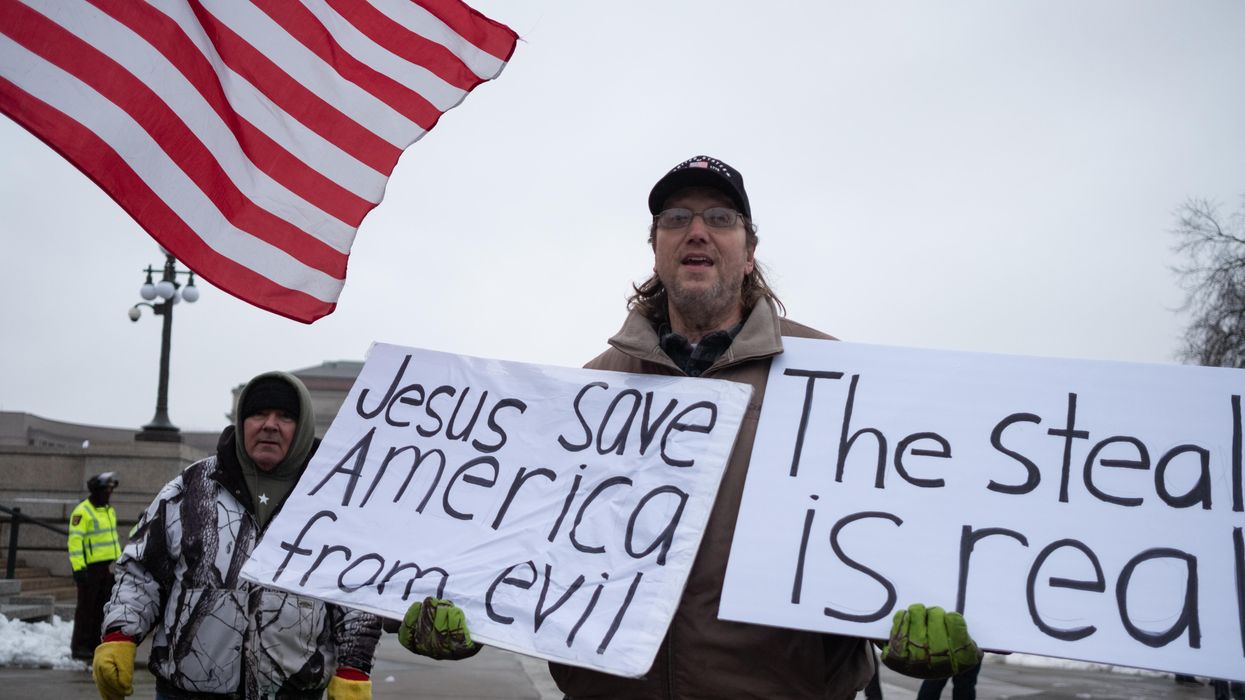The Covid-19 pandemic kicked off a partisan debate over methods of voting, with people on the right arguing that tighter controls are needed to prevent voter fraud while the left argued that the priority must be making it easier for people to vote.
Last year, legislatures in red states passed more than 30 bills that the liberal-leaning Brennan Center for Justice referred to as “restricting access to voting.” But so far, no one has been able to document significant examples of election fraud. Even the conservative Heritage Foundation’s election fraud database shows fewer than two dozen cases of proven election fraud in each of the past two years.
Heritage notes that its database, which documents various methods by which voters and election officials have violated laws, is not comprehensive but rather serves to “demonstrate the vulnerabilities in the election system.”
For example, Heritage found five cases resolved in 2021 in which a person was convicted of duplicate voting. Three of those occurred in the 2020 election, when 159 million people cast ballots. There may be additional convictions coming, but still a far cry from a mathematically significant total.
Trey Hood, a political science professor at the University of Georgia and an elections expert affiliated with MIT’s Election Data and Science Lab, finds value in the Heritage database.
“It’s documentation of verified cases of voter fraud. I think it serves a useful purpose, bringing that information from across the country under one umbrella,” Hood said. “I’m not saying it’s rampant, but it is an illegal activity.”
In total, Heritage tracked 20 instances where election fraud had been proven in 2021. The only cases where the outcome impacted election results were two local 2020 races overturned by judges.
The winner of the Democratic primary to be alderman for the First Ward in Aberdeen, Miss., was changed because 66 of 84 absentee ballots that had been cast were invalid and should not have been counted, enough to overcome the 37-vote margin of victory. And the general election for a seat on the Eatonville, Fla., Town Council was overturned because two ballots had been improperly cast in a race decided by one vote (262-261).
The additional cases resolved in 2021 included:
- One case of altering the vote count, in which an official accepted bribes to add fraudulent ballots to voting machines in Philadelphia.
- One case of ballot petition fraud, involving falsified signatures on a nominating petition for a seat on the city council in Morgantown, W.Va.
- Five cases of fraudulent voter registration.
- Five cases of fraudulent use of absentee ballots.
- One case of impersonation fraud at the polls.
- One case of ineligible voting, in which a felon submitted a false certification of restoration and then registered to vote in Tennessee in 2019.
The database includes 17 cases from 2020 and 34 from 2019. Over the previous seven years, Heritage tracked 50-66 cases of proven fraud per year.
As Hood noted, “Every state has laws on their books about preventing fraud. That’s nothing new.”
But the past couple years, red states and blue states have hardened their positions.
“Its become a little more hyped up on steroids because of Trump and everything else that’s going on,” he said. “If anything, access to the franchise has expanded over the decades. It’s much easier to cast a ballot now than it was 30 years ago.”
Sean Morales-Doyle, the acting director of the Voting Rights and Elections program at the Brennan Center, would like to see legislative muscle used for other issues.
“The type of fraud I think the database is concerned with, that is not some problem that is out of control, that is not currently tracked, caught and processed when it happens,” he said. “States don’t need to pass laws because they already have laws on the books and they work.”
But because former President Donald Trump has continued to insist that the election was stolen from him through fraudulent activity, nearly one-third of the country believes President Biden’s election was not legitimate.
“Election officials did heroic work in 2020. They managed to run a successful election, the most secure election in our nation's history according to the Department of Homeland Security, an election with record turnout. And they did all of that in an unprecedented pandemic,” said Morales-Doyle. “It is important that people like myself and others in the space remind people of that fact.”
He believes that faith in elections will be restored if Congress passes the two bills that have been blocked by Senate Republicans: the Freedom to Vote Act and the John Lewis Voting Rights Advancement Act.
“If our elected officials show that they are taking seriously how our democracy works … and providing a baseline for how our elections should work, that will go a long way to restoring faith in how our elections work,” said Morales-Doyle.
He explained that the Freedom to Vote Act would establish a federal standard to remove some of the patchwork, state-by-state rules, which undermine confidence in elections.
Representatives of the Heritage Foundation did not respond to questions for this article.




















Why does the Trump family always get a pass?